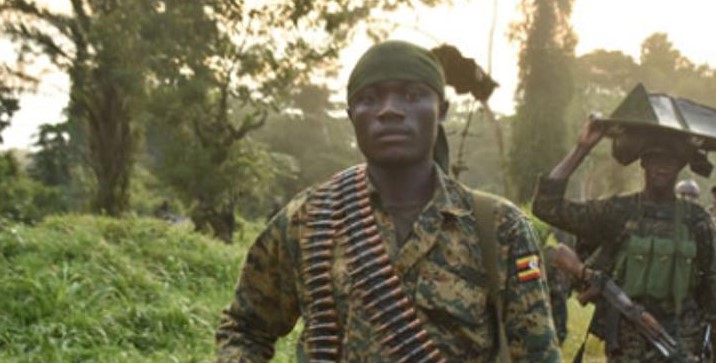South Sudan is entering a phase of political deformation in which sovereignty is not lost through war, but through institutional surrender. The prolonged and opaque presence of Ugandan military forces in Juba and along the border corridors is no longer a matter of cooperation—it reflects a deeper strategic encirclement.
Uganda’s regional posture is neither defensive nor ad hoc; it is preemptive, assertive, and grounded in a doctrine of geopolitical consolidation through militarized clientelism. From Eastern Congo to northern CAR and Somalia, Kampala has repeatedly projected force under the guise of stabilization, while cultivating dependency and political leverage within fragmented states.
South Sudan now reflects this pattern. The deployment of troops without a formal Status of Forces Agreement, operating independently of national command, and positioned in critical security zones—including the capital—signals a parasovereign arrangement. What is unfolding is not support—it is substitution.
This dynamic aligns with hegemonic stability theory: a dominant power offers order in exchange for strategic obedience, gradually undermining the autonomy of the weaker state. It is not temporary intervention, but a strategy of controlled dependency.
Uganda’s first direct military intervention in South Sudan came in 2013, amid civil war. Though framed as a stabilizing force, its real function was regime preservation. The presence of Ugandan troops neutralized domestic challenges to power and diluted the influence of peace agreements. By 2014, Kampala had embedded itself in the architecture of elite survival.
By 2025, Ugandan forces had re-entered sensitive areas like Nasir and expanded operations in the borderlands of Equatoria, notably Kajo-Keji, Magwi, and Nimule. These areas are not mere buffer zones; they are strategic corridors. Under the pretext of security cooperation, Uganda has positioned itself to shape territorial control and suppress internal dissent.
This pattern reflects a deeper logic: outsourcing sovereignty to external actors in exchange for political continuity. Military dependency becomes a substitute for institutional legitimacy.
This approach is not new to the region. In 1979, Tanzania removed Idi Amin militarily and played a central role in shaping Uganda’s post-war governance. That moment inaugurated a model of regional tutelage, where weaker states become arenas of foreign-engineered order.
A broader historical analogy can be drawn from Soviet actions in Hungary (1956) and Czechoslovakia (1968), where Moscow maintained client regimes under the banner of “stability.” Uganda’s behavior is not ideological, but it echoes the same structure: political alignment through militarized proximity.
The result is a client-state configuration, where sovereignty exists in name, while real power is externally mediated.
Equatoria’s frontier zones—especially Kajo-Keji—have become the geography of silent intervention. What appears as cross-border patrols is, in effect, a boots-before-boundaries strategy: establishing facts on the ground that shift the balance of power relations. These deployments are not tactical—they are cartographic (about redrawing the spatial-political reality).
The re-entry into Nasir adds a northern dimension to this encirclement, signaling a shift from containment to territorial staging. Uganda’s security posture is no longer limited to support. It is positional, designed to influence domestic equilibrium and preempt alternative alliances.
This arrangement comes at a cost. Allowing foreign forces to entrench within the state’s command and security fabric—absent legal mandate—has institutionalized vulnerability. South Sudan, born of resistance, now faces the risk of becoming a corridor for external military and political influence.
The logic of managing insecurity through foreign presence has produced governance by guardianship, not by sovereign consent. And as Uganda expands its leverage, South Sudan’s room for independent policy narrows.
The solution is not rhetorical unity—but strategic reconciliation. The political and military elites must transcend egos and narrow interests. The state is not a prize—it is a collective trust for the living and the unborn.
We must abandon the politics of exclusion, revenge, and foreign outsourcing. The struggle must return to its rightful frame: internal reform, national revival, and institutional sovereignty.
South Sudan’s fate will not be decided in foreign capitals. It will be shaped by the ability of its leaders to prioritize the republic over the ambitions of men. No foreign actor will defend what we ourselves are unwilling to preserve.
This is not an occupation in the conventional sense. It is something far more insidious—strategic substitution disguised as security.
History will not be kind to a leadership that mistakes survival for sovereignty.
The writer, Samuel Peter Oyay, is a South Sudanese political activist, strategist, and commentator with over two decades of experience in governance and management. He can be reached via samualjago@yahoo.com
The views expressed in ‘opinion’ articles published by Radio Tamazuj are solely those of the writer. The veracity of any claims made is the responsibility of the author, not Radio Tamazuj.




